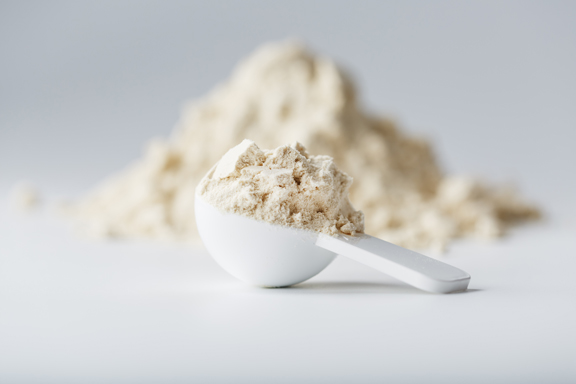Natural Weight Loss Supplements That Actually Work
Weight loss supplements stand out as a beacon for those seeking assistance in their journey towards optimal health and physique. These supplements, offer a complementary approach to traditional diet and exercise, and are becoming a cornerstone in the strategies for achieving and maintaining desired weight loss goals. Their importance underscores a growing trend toward leveraging scientific advancements and nature’s bounty to support the best way to lose weight, underpinning the necessity for effective, safe, and scientifically-backed options.
What Are Weight Loss Supplements?
Weight loss supplements are products designed to assist individuals in losing weight. These supplements can include a range of ingredients such as vitamins, minerals, fiber, caffeine, and various extracts from herbs and other plants. Often marketed with claims of boosting metabolism, burning fat, or enhancing energy levels, these supplements are not intended to replace healthy diet and exercise but rather to augment them.
Top Healthy Weight Loss Supplements
Protein Powder
Protein is a crucial nutrient in the weight loss journey, significantly aiding metabolism and reducing appetite. It helps decrease hunger and appetite by promoting the release of fullness hormones such as GLP-1 and PYY, making individuals feel satiated for longer periods. This effect is essential for those looking to lose body fat without sacrificing muscle mass.

Key Benefits of Protein Powder
- Supports Healthy Metabolism: Protein consumption can enhance metabolic rate because the body expends more energy digesting protein compared to fats or carbohydrates. This process, known as the thermic effect of food, contributes to weight loss.
- Muscle Maintenance and Growth: A high-protein diet, particularly when combined with strength training, facilitates muscle building, which is vital since muscle mass boosts metabolism and energy production.
- Satiety and Appetite Control: Protein’s ability to reduce appetite and extend feelings of fullness can help prevent overeating, which is crucial in a calorie-restricted diet.
However, it’s important to communicate that while protein powders can complement a weight loss regime, they are not a standalone solution. They work best when integrated into a balanced diet and regular exercise program.

Fiber
Fiber supplements are essential for those seeking to enhance their dietary fiber intake, especially when natural sources are insufficient. These supplements, often derived from isolating plant fibers, play a pivotal role in managing weight and improving digestive health. However, their effectiveness in weight control is nuanced and varies depending on the type of fiber used.
Benefits and Limitations
Fiber supplements offer several health benefits:
- Digestive Health: They can alleviate common digestive issues such as constipation and diarrhea, providing relief to those suffering from conditions like irritable bowel syndrome (IBS).
- Weight Management: Certain fibers like glucomannan have shown promise in aiding weight loss in overweight and obese individuals by promoting satiety.
Yet, these supplements also come with limitations:
- Nutrient Absorption: They can interfere with the absorption of essential minerals like iron and calcium, particularly if not taken with adequate water.
- Overreliance Risks: Excessive dependence on fiber supplements might lead to neglecting a diet rich in natural fiber sources, such as fruits and vegetables.
Multivitamins
Recent studies have highlighted the potential role of multivitamins in weight management, suggesting that a daily multivitamin supplement may contribute modestly to weight loss. Research indicates that multivitamins can play a part in reducing body weight and improving appetite control, which can be particularly beneficial for those not receiving adequate nutrients from their diet alone.

Insights from Recent Studies
A notable study involving over 85 obese women in China revealed that participants who took a daily multivitamin lost an average of about three and a half pounds over six months without altering their diet, compared to no weight loss in the placebo group. This study, published in the International Journal of Obesity in February 2010, suggests that multivitamins may help reduce body weight by providing essential nutrients that curb appetite and prevent overeating.

Magnesium
Magnesium plays a crucial role in numerous bodily functions, making it an essential mineral for overall health. It aids in energy production, regulates blood sugar levels, and is vital for proper heart, muscle, and kidney function. Additionally, magnesium contributes to the structural development of bones and teeth.
Importance in Weight Management and Health
Magnesium’s ability to regulate blood sugar and insulin levels makes it particularly beneficial for individuals who are overweight or obese. A study in 2013 highlighted that higher magnesium intake helps in controlling insulin and glucose blood levels, which can be crucial for managing body weight. Moreover, magnesium has shown effectiveness in alleviating bloating and water retention, common symptoms that can affect overall weight management.
While magnesium supplements can be beneficial, they must be used cautiously due to the potential for negative side effects like upset stomach, diarrhea, and more severe symptoms from mega-dosing. It’s crucial for businesses to source high-quality supplements from reputable manufacturers, ensuring products are safe and effective for consumer use.
B Vitamins
B vitamins are crucial for maintaining a healthy metabolism, which is essential for effective weight management. These vitamins, including thiamine (B-1), riboflavin (B-2), niacin (B-3), pantothenic acid (B-5), pyridoxine (B-6), biotin (B-7), folate (B-9), and cobalamin (B-12), play vital roles in helping the body metabolize carbohydrates, proteins, and fats. The synergy among these vitamins ensures that energy is efficiently produced and utilized, rather than being stored as fat.

Essential Roles in Energy Metabolism
The B vitamins are integral in the metabolic processes of the body:
- Thiamine (B-1) aids in converting carbohydrates into energy, crucial for ATP production.
- Vitamin B-6 is significant for protein metabolism and also works closely with B-12 and folate to facilitate proper metabolic functioning.
- Vitamin B-12, essential for protein and fat metabolism, is particularly important as it is solely found in animal products, posing a challenge for vegetarians and vegans to obtain sufficient amounts.
Conclusion
Throughout this exploration of natural weight loss supplements, we’ve uncovered the multifaceted roles that protein powders, fiber supplements, essential minerals like chromium picolinate and magnesium, B vitamins, and multivitamins play in supporting weight management strategies. Emphasizing the significance of each, particularly when integrated with healthy diets and exercise, underscores the approach to holistic health that is increasingly sought after in today’s market. For businesses looking to cater to this demand, the key lies in offering well-researched, high-quality supplements that align with the latest health and wellness trends, ensuring that these products are implemented as part of a balanced lifestyle rather than quick fixes.
Read out our article about the Zero Calorie Foods to Help You Slim Down.
If you’re seeking a supplier that can provide you with healthy supplements, don’t hesitate to get in touch and we’ll send you our personalised catalogues. Whether you’re a supermarket or a pharmacy, we’d be delighted to help you, with no obligation on your part. Don’t miss out on learning all about the finest healthy and organic products!
If you’re thinking of developing your own private label, we have a wide variety of reliable producers, an extensive catalogue of ingredients, a skilled team of designers, advisors, translators, and all kinds of services related to brand development to help you succeed in the market.



